#oracle netsuite alternatives
Explore tagged Tumblr posts
Text
Exploring the Top 10 SAP Competitors and Alternative ERP Solutions in 2023
SAP ERP (Enterprise Resource Planning) has been a leading company in software that provides complete solutions to manage various aspects of business. However, the changing technology landscape and growing customer demands have resulted in the development of other ERP solutions. In this blog, we will look at some of the best SAP Competitors available in the market, focusing on their benefits,…
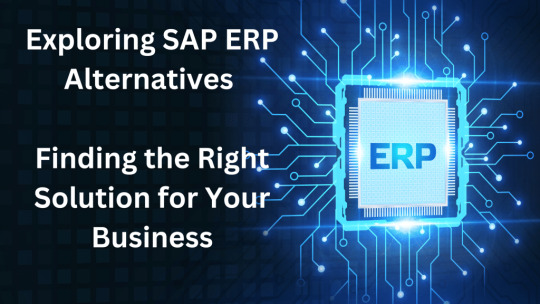
View On WordPress
#alternatives to sap erp#best sap software#companies similar to sap#competitor to sap#is sap the best erp#netsuite competitors analysis#oracle netsuite alternatives#other erp software#sap alternative#sap alternative open source#sap alternatives#sap and other erp systems#sap competitor#sap competitors#sap competitors erp#sap competitors list#sap equivalent software#sap erp examples#sap konkurrenz#sap like software for small business#sap software alternatives#what companies use sap erp#what software is similar to sap#who is sap&039;s biggest competitor#who uses sap erp
0 notes
Text
Effortlessly Manage Recurring Revenue with NetSuite Cloud ERP

The adoption of subscriptions and recurring revenue models has affected almost every modern business in one way or another. From SaaS platforms, media companies, and professional services, income streams that can be predicted have become the new treasure for financial security. Unfortunately, most legacy systems were never designed to deal with modern billing cycle complexities, usage-based pricing, or automated renewals.
Oracle NetSuite Cloud ERP is positioned to bridge that gap. This sophisticated enterprise resource planning system does not only track transactions but also manages the entire customer lifecycle, actively transforming billing operations from a tactical necessity into a competitive advantage.
1. Flexible Billing for Every Business Model
The good thing about recurring revenue is the convenience that comes along with it. However, that very convenience can be a nightmare in itself without the right tools. Oracle NetSuite Cloud ERP can deal with everything from simple monthly subscriptions to much more complex hybrids that include fixed fees and usage-based components. Take, for example, the case of a software company that needs to bill some customers annually, while other customers are billed quarterly, and there are some who require variable rates based on API calls or storage usage. Traditional accounting systems fail under such strain, but NetSuite excels at it.
2. Subscription Management That Actually Scales:
Managing subscribers can be described as a delicate interplay between insight and precision. NetSuite Cloud ERP handles the proactive revenue optimization of subscriber management, turning reactive firefighting into a streamlined process. The system goes beyond merely accepting payments—it offers a holistic vantage point of all customer relationships. NetSuite flags high-value clients who are in danger of churning before it becomes an issue. It alerts subscription services to offer potential upsells to customers who continuously max out their limits. This level of intelligence for rapid growth businesses is crucial in achieving successful scale rather than drowning in operational complexity.
3. Focus on Royalty and Licensing Management:
Like in the media industry, software development and content platforms also face difficulties managing royalties and licensing fees. The myriads of contracts, their differing terms, payment schedules, and complex profit-sharing formulas create an intricate network of financial responsibilities that is nearly impossible to keep track of manually. Oracle NetSuite Cloud ERP provides a solution for all these headaches. Even more importantly, content creators and partners receive precise payments for their contributions on schedule - improving business relations. If a company’s most precious asset is their intellectual property, there is no suitable alternative to his level of financial clarity.
4. Unified Financials: From Billing to Revenue Recognition:
Ensuring compliance isn’t simple, as miscalculations at this stage can lead to restatements, audits, and loss of investor trust. NetSuite Cloud ERP simplifies compliance at every level by automating deferred revenue, revenue allocation, and amortization schedule management over multiple reporting periods. For publicly traded companies or those looking to go public, convenience matters less than avoiding dire financial threats using compliance regulations that protect investors and regulators.
5. What Makes NetSuite Unique Among Others in the ERP Industry:
Among all enterprise resource planning systems, Oracle NetSuite Cloud ERP sits atop the competition for its inherent grasp of businesses with subscription models. While other systems slap on subscription handling as an afterthought, NetSuite was designed from the ground up to manage the complexities of modern business models. Perhaps most importantly, NetSuite adapts to your business growth, managing everything from a startup's first hundred subscribers to an enterprise with millions of customer relationships. Connecting to an always-changing business world is easier with an ERP system without costly tailoring, and NetSuite stands out among the rest.
In our time, one of the most important changes in business is the shift to recurring revenue models. However, none of this is possible without effort. Oracle NetSuite Cloud ERP Systems will change the situation by automating key processes like billing, customer management, and finances, transforming the concept of recurring revenue into a real competitive advantage. SoftCore Solutions, proudly recognized as one of the best Oracle NetSuite Cloud ERP partners in India, further cements this.
FAQs
1. Can NetSuite handle complex subscription tiers?
Careful management of complex subscription tiers is NetSuite’s strong suit. It fully supports simple and flat-rate subscriptions as well as more hybrid systems with fixed, usage-based, and tiered pricing.
2. Does NetSuite adhere to the revenue recognition standards?
The system inherently complies with ASC 606 and IFRS 15 by automating revenue allocation for different time periods and preserving detailed audit trails for effortless financial reporting and auditing.
3. Where can I search for NetSuite specialists in India?
In addition to Oracle, you can search for local implementation gurus using the network of authorized NetSuite partners in India, as these offer training and ongoing maintenance tailored to your business.
0 notes
Text
Industry-Wise Breakdown: Best ERP Software in Dubai for Retail, Manufacturing, and Construction
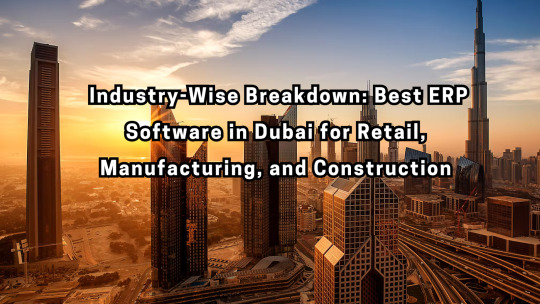
Dubai’s booming economy is home to a wide range of industries—each with its own unique operational challenges. From retail showrooms and manufacturing plants to large-scale construction projects, businesses are increasingly turning to ERP (Enterprise Resource Planning) software to streamline their operations and stay competitive.
But not all ERP systems are created equal. The needs of a retail chain differ significantly from those of a manufacturing unit or construction firm. In this blog, we break down the best ERP software in Dubai tailored to the specific needs of Retail, Manufacturing, and Construction industries.
1. Best ERP Software for Retail in Dubai
Retail in Dubai is fast-paced, dynamic, and highly customer-centric. With the rise of omni-channel selling and VAT compliance, ERP systems for retail must offer:
Real-time inventory tracking
POS integration
Customer loyalty management
Sales forecasting
Multi-store control
Top Choice: Odoo ERP (Retail Module) Odoo’s modular design makes it a great fit for Dubai's retail sector. With robust inventory, sales, and CRM features, it also integrates smoothly with eCommerce platforms and payment gateways.
Other Notables:
Microsoft Dynamics 365: Excellent for large retail chains with advanced reporting and AI-based insights.
SAP Business One: Reliable for businesses that want comprehensive control over finance, inventory, and CRM.
2. Best ERP Software for Manufacturing in Dubai
Manufacturers in Dubai are looking for solutions that can handle everything from raw material procurement to production planning and quality control. Key features include:
Bill of materials (BOM) management
Production scheduling
Shop floor control
Inventory and warehouse automation
Supply chain visibility
Top Choice: Oracle NetSuite ERP NetSuite is a cloud-based solution that supports lean manufacturing, offers real-time data visibility, and is highly scalable. It’s ideal for medium to large enterprises in Dubai’s manufacturing landscape.
Other Notables:
Infor CloudSuite Industrial (SyteLine): Specially built for manufacturers, with tools for product configuration and workflow automation.
ERPNext (Manufacturing Module): Great for SMEs looking for a cost-effective open-source alternative.
3. Best ERP Software for Construction in Dubai
Dubai’s construction industry is one of the most vibrant in the world. Project deadlines, budget management, resource planning, and regulatory compliance make ERP crucial for this sector. Important features include:
Project planning and scheduling
Job costing and budgeting
Contractor and subcontractor management
Equipment and resource tracking
Real-time reporting and dashboards
Top Choice: IFS ERP (Engineering & Construction Suite) IFS provides a project-centric ERP solution tailored to the complexities of large construction projects. It offers strong capabilities in asset management, finance, and project lifecycle tracking.
Other Notables:
SAP S/4HANA: Ideal for large-scale infrastructure companies with complex needs.
BuilderTREND + QuickBooks ERP Integration: Perfect for small to mid-sized construction businesses focused on job tracking and cost control.
Final Thoughts
Choosing the Best ERP Software Dubai isn’t just about picking a big-name brand—it’s about finding the right fit for your industry and business size. Dubai’s diverse market demands ERP solutions that are scalable, VAT-compliant, and tailored to sector-specific operations.
Whether you’re running a retail chain, managing a manufacturing plant, or overseeing major construction projects, investing in the right ERP can lead to higher efficiency, cost savings, and smarter decision-making.
Need Help Choosing the Right ERP for Your Industry? Get in touch with our Dubai-based ERP consultants today for a free demo and personalized recommendation.
0 notes
Text
ERP Systems: NetSuite vs Other ERP Solutions - A Comprehensive Comparison
When it comes to selecting an Enterprise Resource Planning (ERP) solution for your business, the decision can be overwhelming given the number of options available. ERP systems are critical for managing various business functions, including accounting, inventory management, customer relationship management (CRM), and more. Among the leading ERP solutions, NetSuite ERP systems have gained significant popularity, but how does it compare to other ERP systems in the market?
What are ERP Systems?
Enterprise Resource Planning (ERP) systems are software solutions that are designed to integrate and smooth the core of business processes. From managing finances and human resources to inventory and supply chain, ERP systems help businesses increase efficiency by centralizing their operations on a single platform. With the growing demands for scalability, flexibility, and real-time insights, businesses need to carefully consider their ERP options to ensure they are choosing the best solution for their needs.
NetSuite ERP Systems: A Leading Solution
NetSuite ERP systems stand out as one of the most robust and comprehensive solutions in the market. As a cloud-based ERP, NetSuite offers a fully integrated suite of business applications that includes modules for financial management, CRM, e-commerce, inventory management, and more. Since being acquired by Oracle, NetSuite has continued to enhance its features and functionality, making it a powerful choice for businesses of all sizes.
What sets NetSuite ERP systems apart is their scalability and flexibility. Whether you are a small business looking for a simple solution or a large corporation needing advanced capabilities, NetSuite can grow with your needs. Additionally, being cloud-based means that users can access the system from anywhere, anytime, making it ideal for businesses with remote teams or multiple locations.
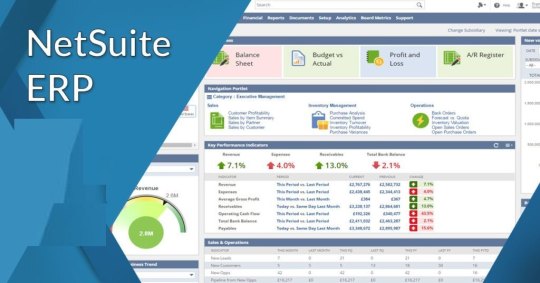
ERP Systems Comparison: NetSuite vs Other ERP Solutions
When evaluating ERP systems, it’s essential to compare NetSuite to other popular ERP solutions. Below is a breakdown of how NetSuite ERP systems stack up against some well-known alternatives:
SAP ERP Systems SAP is one of the largest ERP providers globally and is known for its robust, feature-rich solutions. While SAP ERP systems are highly customizable and suitable for large enterprises, they can be complex and expensive, particularly for small to mid-sized businesses. NetSuite, on the other hand, is often seen as a more user-friendly and cost-effective alternative for businesses looking for flexibility without the complexity of SAP.
Microsoft Dynamics 365 Microsoft Dynamics 365 is another well-established ERP solution, offering a range of functionalities from finance and operations to customer service and sales. While Microsoft Dynamics 365 provides a strong suite of tools for enterprises, NetSuite offers more seamless integration and scalability in a cloud-based environment. For businesses that prioritize cloud-based management and real-time insights, NetSuite ERP systems often offer a more straightforward solution compared to Microsoft Dynamics.
Oracle ERP Cloud Oracle ERP Cloud is another cloud-based ERP solution that competes directly with NetSuite ERP systems. While both platforms offer advanced features and capabilities, NetSuite ERP systems tend to be more focused on small to mid-sized businesses, while Oracle’s ERP Cloud is often better suited for larger enterprises with more complex needs. For companies looking for an affordable yet feature-rich cloud ERP system, NetSuite provides a strong, user-friendly option.
Key Benefits of NetSuite ERP Systems
Scalability and Flexibility: NetSuite ERP systems are designed to scale with your business. Whether you’re a startup or a global enterprise, NetSuite offers customizable solutions to meet your needs.
Cloud-Based Solution: As a cloud-based platform, NetSuite offers real-time data access, seamless updates, and remote accessibility, helping businesses stay agile in today’s fast-paced world.
Comprehensive Features: NetSuite provides a fully integrated suite of applications, enabling businesses to manage everything from financials to CRM, reducing the need for multiple systems.
Ease of Use: Many users find NetSuite’s interface more intuitive and user-friendly compared to other ERP systems, making adoption and training easier for teams.
Conclusion Choosing the right ERP system is critical for businesses seeking to streamline their operations and enhance productivity. NetSuite ERP systems offer a powerful, cloud-based solution that stands out for its scalability, integration, and ease of use. When comparing NetSuite to other ERP systems, it becomes clear that it offers a comprehensive, flexible solution that can grow with your business. Whether you are looking to replace an outdated system or implement a new ERP solution, NetSuite provides a compelling choice for businesses of all sizes.
Before making your final decision, it’s important to conduct a thorough ERP systems comparison to determine which solution aligns best with your business goals and requirements. By carefully evaluating each option, you can ensure that your company invests in the ERP system that will drive long-term success.
#netsuite competitors#netsuite erp competitors#netsuite erp consulting#netsuite erp consultant#netsuite manufacturing#netsuite solutions for manufacturing
0 notes
Text
Epicor vs NetSuite
Epicor vs NetSuite:
Which ERP answer is proper on your business?
Epicor vs NetSuite: selecting the right business enterprise resource making plans (ERP) software program is critical for any business looking to streamline operations and enhance performance. two of the most famous ERP answers in the marketplace nowadays are Epicor and NetSuite. both offer a comprehensive suite of equipment designed to meet the numerous wishes of diverse industries, but which one is the pleasant match on your business?
Overview of Epicor and NetSuite
Epicor: tailor-made solutions for enterprise-unique needs
Epicor is renowned for its industry-precise ERP answers, catering to sectors which includes manufacturing, distribution, retail, and services. Epicor's bendy architecture permits it to conform to the precise necessities of each enterprise, making it a fairly customizable alternative for companies with specialised desires.
NetSuite: Complete Cloud-based totally ERP
NetSuite, a fabricated from Oracle, is a main cloud-based ERP solution that integrates monetary control, CRM, eCommerce, and extra right into a unmarried platform. NetSuite is thought for its scalability, making it a really perfect choice for developing companies.
0 notes
Text
Explore 4 Vital Warehouse Management System (WMS) Types - Integs Cloud
The utilization of WMS software is vital for the operational success of a business. However, choosing the appropriate one can be challenging. With various types of warehouse management systems available and multiple alternatives within each category, selecting the right fit necessitates an introspective comprehension of the available options, their distinctions, and identifying the most suitable solution for your organization.
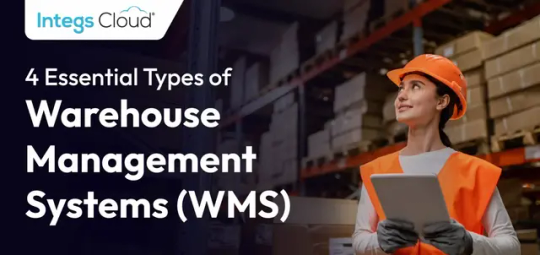
But above all, understanding these options, what makes them different, and why these differences will determine which is the best solution for the nature of your business is important while making a final decision. For 3PL businesses, there exist 4 distinct types of warehouse management systems (WMS). In this blog, we will attempt to understand each one of them in detail!
What Are The 4 Types Of Warehouse Management Systems?
1. Standalone WMS
If you want to purchase standalone systems solely for your warehouse management features and absolutely nothing else, then the standalone WMS is the one for you! Vendors often merge these warehousing systems with current or future solutions, yet market them as specialized products without other supply chain functions.
Although some vendors may provide a few fundamental transportation management tools, the primary focus remains on the best-of-breed WMS approach. Essentially, this involves selective breeding, where only the most crucial and outstanding features from all potential warehouse management system modules are included.
In the different types of warehouse management systems, these typically comprise inventory management and warehouse operations, and users of standalone WMSs can anticipate features such as barcode scanning, cycle counting, slotting, putaway, receiving, picking, packing, and shipping.

2. Supply Chain Modules
When evaluating different WMS systems, it may be helpful to consider them as a subcategory of supply chain management (SCM). SCM software has a wide range of capabilities, from managing vendor relationships to business processes to risk assessment. It emphasizes automating inventory management, material sourcing, and product cycles.
Choosing this type of warehouse management system entails investing in supply chain planning applications that also offer warehousing features. This is quite a popular approach as it allows 3PL businesses to explore the numerous benefits of SCM as well. Combining WMS with other applications promotes cohesion between different aspects of the business and supports holistic management of the entire supply chain.

3. ERP Integrated
Another well-rounded option from the types of warehouse management systems is ERP solutions. Major 3PL processes including supply chain planning, accounting, procurement, HR, CRM, etc. can be availed via ERP solutions. It can also help upgrade the overall software of an organization.
But, you can’t just blindly opt for any ERP. One excellent choice is Oracle NetSuite ERP which offers WMS solutions that are one step ahead & also provide a centralized system. Incorporating WMS as a supply chain module or integrating it with an ERP system differs from standalone systems as it provides warehouse management as a part of a tool with broader capabilities.
The initial decision to make is whether investing in a specialized WMS or opting for a combined product would be more advantageous. The answer largely depends on the size and objectives of your business.
4. Cloud-based
In terms of maintenance costs and installation, on-premise solutions are often not reliable. You may end up paying significant amounts to handle installation and infrastructure.
In contrast, opting for a cloud-based WMS provides several significant advantages. As these solutions are hosted and maintained by a provider, implementation, and installation costs can be greatly reduced. These scalable solutions are particularly suitable for startups and smaller businesses due to their low cost of entry and subscription-based payment options.
Cloud-based management systems optimize warehouse activities, such as inventory reporting, workflow streamlining through automation, and reducing data entry time. They also ensure timely product updates and real-time data access. Implementing a cloud-based WMS enables you to manage multiple system functionalities from a centralized system.

Conclusion
Based on how you can operate and navigate the types of warehouse management systems, you can decide to choose the best one suited for the nature of your business. For expertise on ERP-based WMS solutions, you don’t need to look further than Integs Cloud Technologies’ expertise!
To know more - https://integscloud.com/blog/types-of-warehouse-management-systems-wms/
#OracleNetSuite#NetSuite#CeligoiPaaS#iPaaS#Integration#Automation#API#SaaS#Enterprise#Tech#Technology#ERP#Software#IntegsCloud#ecommerce#retail#warehouse#warehousemanagement#supplychainmanagement
0 notes
Link
We feel compelled to review the Oracle Netsuite accounting software so you can decide if it suits handling your accounting transactions or if you will do a better search for another alternative.
0 notes
Text
NetSuite Partner Amsterdam
Unleashing commercial enterprise functionality: The final manual to deciding on a NetSuite partner in Amsterdam within the dynamic panorama of commercial company generation, locating the proper NetSuite partner in Amsterdam may be a game-changer to your organisation's increase. NetSuite, an Oracle-owned cloud-based totally suite, offers a myriad of solutions for company useful resource planning (ERP), purchaser relationship control (CRM), and e-alternate. Partnering with the proper provider organisation is important to unlocking the complete functionality of this powerful device. in this whole manual, we are able to navigate via the key concerns and advantages of choosing a NetSuite companion in Amsterdam that aligns seamlessly with your employer goals.
the Essence of NetSuite Partnership before delving into the standards for choosing a NetSuite partner, it's critical to recognise the significance of the sort of partnership. NetSuite companions play a pivotal characteristic within the a success implementation, customization, and ongoing aid of NetSuite solutions. Their expertise guarantees that your enterprise harnesses the whole competencies of this sturdy platform, foremost to improved performance and streamlined operations.
The Amsterdam advantage: Why region subjects Strategic Proximity: choosing a NetSuite accomplice in Amsterdam offers strategic proximity for businesses in Europe. Proximity fosters higher communique, faster response times, and a deeper expertise of nearby market dynamics.
Compliance know-how: Amsterdam, being a hub of worldwide corporation, desires a accomplice nicely-versed in nearby compliance rules. a nearby NetSuite associate is more likely to have a complete of the criminal panorama, making sure your business stays compliant.
NetSuite Partner Amsterdam
Key functions to search for in a NetSuite accomplice
Certifications and a good NetSuite companion should preserve certifications demonstrating their understanding in implementing and handling NetSuite answers. search for certifications together with SuiteFoundation, SuiteCloud Developer, and ERP consultant certifications, making sure that the accomplice has a expert and knowledgeable group.
Customization abilties every commercial enterprise is particular, and your NetSuite solution should replicate that. A talented NetSuite companion in Amsterdam ought to provide customization services tailored on your particular industry necessities. This guarantees that the platform aligns seamlessly together along with your business techniques.
proven tune report earlier than committing to a partnership, verify the partner's track record. A NetSuite companion with a facts of a achievement implementations and glad clients is much more likely to supply brilliant service. consumer testimonials and case research offer valuable insights into the accomplice's abilities.
Ongoing assist and protection the journey with NetSuite does now not cease with implementation. A dependable companion should provide non-forestall useful resource, gadget updates, and troubleshooting services. This guarantees that your enterprise studies minimum disruptions and might adapt to evolving desires.
0 notes
Text
Do SAP and Oracle still dominate the Global Cloud ERP Market?

The global cloud market is growing by leaps and bounds. According to a research by MarketsandMarkets on Cloud ERP Market by Component (Solution and Services), Business Function (Accounting and Finance, Sales and Marketing, Inventory and Order Management, and Human Capital Management), Vertical, Organization Size, and Region - Global Forecast to 2024, the global ERP market size is expected to reach USD 37.7 billion by 2024 from USD 24.5 billion in 2019, growing at a Compound Annual Growth Rate (CAGR) of 9.0% during the forecast period.
Let’s explore the attributes and trends in the market put forth by the report that contribute towards the massive growth of the cloud ERP market.
Why Cloud ERP?
The enterprises are feeling the urge to streamline the business processes for optimal outcomes. The need is further strengthened as the companies face resources crunch in the absence of efficient resource management tools, thus giving birth to the need for implementing ERP. However, cost factors are the major obstacles on the path of implementing an ERP solution.
This is the primary reason the cloud ERP market is facing massive demand as the companies seek a cost-effective alternative when they attempt to assimilate technology in their business operations. A cloud ERP is an enhanced solution in the contemporary scenario. Additionally, this trend is very much prevailing among SMEs, as the cost is a significant challenge for them when it comes to ERP implementation.
Which is the largest market for Cloud ERP?
According to the report, North America is the leader in adopting tech-driven disruptions in the business. Because of the dominant players in the cloud market like Amazon, Microsoft, and Google with immense technical acumen, the North American market has been experiencing technological progress at the fastest rate. This makes North American firms flag-bearers when it comes to embrace Predictive Analytics, Robotics, Machine Learning, Artificial intelligence, Internet of Things, and Big Data. Asia Pacific countries rank second after North America. An increasing number of firms in APAC are adopting ERP cloud for achieving financial, personnel, and operational efficiencies.
The cloud ERP market is typically ruled by few major players including but not limited to Oracle, SAP, Infor, Microsoft, Epicor, Plex Systems, Workday, and many more. With its first version released in 1972, SAP is the leader in ERP solutions. In 2006, SAP released SAP Business All-in-One, focusing SMEs. SAP HANA is the latest version launched in 2015. S/4HANA Cloud is the cloud ERP business suite offered by SAP.
Oracle launched its first ERP cloud solution in 2012 while it has enabled it with AI in March 2019. Oracle has deployed cloud ERP in many firms while upgrading their legacy systems due to operational bottlenecks like increasing cost and decreasing business agility. Oracle is also focusing on emerging economies like India and China, thus making them a lucrative market for Cloud ERP providers.��
Conclusion
Cloud ERP is one of the most promising technology trends known for supporting backbones of the organizations operating in the customer-centric economy. The innovative breakthroughs are anticipated to provide a favorable environment for cloud ERP for both small and large scale enterprises.
Katalyst Technologies are leaders in providing ERP implementation, support, and professional services. We are certified as a value-added reseller for SAP, Oracle, Celero, and Netsuite. Our product CeleroERP is a cloud-based ERP solution hosted on Amazon AWS platform. The application contains integrated modules covering Warehouse Operations, Sales, Customers, Vendors, Purchases, Inventory, and Accounting and has been developed using the latest and most advanced technologies. The heart of the CeleroERP system is a patent-pending Optimized Pick Algorithm that enables highly efficient warehouse operations.
If you are seeking for end-to-end ERP solutions, Katalyst Technologies can be your right delivery partner.
Contact experts today @ https://katalysttech.com/connect/
#cloud erp#enterprise resource planning#erp implementation#erp software#erp solutions#erp services#erp support
2 notes
·
View notes
Text
Microsoft Dynamics Nav Vs Sage Erp Comparison Reviews
Let’s join to speak about your needs and what you’re in search of in a software program answer. However it seems SAP All in One and Business By Design are both advertising an "ease of use - quick sage x3 comparison to implement - inexpensive with a not to exceed guarantee". If more than simply advertising fluff, SAP is now offering extra than simply name recognition.
Sage Intacct presents a reasonable entry point for small-but-growing businesses, together with the flexibleness to add customers, entities, and modules as you need them. Out-of-the-box - NetSuite has industry-specific performance for Software, Services, Advertising, Media Publishing , Nonprofit, Manufacturing, Wholesale Distribution and Retail. SuiteSuccess supplies sage x3 comparison NetSuite customers with trade particular pre-built stories and dashboards pre-configured by function. Sage X3 and Microsoft Dynamics 365 are each geared towards midsized firms.
The program is highly integrative and incorporates varied on-line support and training options for users. Sage operates more like an old-school organization and designed X3 to thrive in advanced manufacturing and distribution environments. It has options geared explicitly towards tracking products all through the supply chain.
Some highlights embody "Bills of Materials" and compliance features based mostly on the FDA, ISO, and Canada Health businesses. Sage X3 and Microsoft Dynamics 365 may be complicated products to research because of a number of name adjustments and redesigns both have experienced. Both Sage X3 and Dynamics AX had been acquired from previous European builders within the early 2000’s and have gone by way of several successive growth phases.
Oracle NetSuite predefines software program setups and configurations which users must undertake to rapidly implement. The problem is that SuiteSuccess skips essential scoping classes and discourages interactivity and configuration during sage x3 comparison the implementation. While Oracle NetSuite prides itself on being a purely cloud-based ERP resolution, Sage X3 permits freedom of alternative. Sage X3 may be run on-premises, privately hosted or within the cloud .
Sage ERP X3 is right for organizations with 50 to 500 staff, subsidiaries of world businesses and companies with an emphasis in distribution, manufacturing and companies. Sage ERP X3 is an on-premise ERP solution that leverages a versatile and open architecture and may help 10 to thousands of concurrent customers inside an organization. The platform is appropriate with each Microsoft SQL Server and Oracle databases. However, Sage doesn't present a internet hosting platform for Sage ERP X3 at this time. Both NetSuite and Intacct are cloud-based ERP techniques with multi-tenant, software-as-a-service deployment models.
1 note
·
View note
Text
How to manage disruption in the product supply chain with NetSuite Cloud ERP?
In today's globalized and rapidly changing business landscape, disruptions in the product supply chain have become a common challenge that companies must navigate. From unforeseen events like natural disasters and geopolitical tensions to shifts in consumer behaviour and supply chain complexities, businesses constantly need to adapt and respond swiftly to maintain operational continuity. NetSuite Cloud ERP emerges as a powerful tool to manage and mitigate disruptions in the product supply chain, offering a comprehensive and agile solution to navigate uncertainties.
Real-time Visibility and Monitoring:
Oracle NetSuite partners in India helps businesses with real-time visibility of their supply chain network. This capability allows for continuous monitoring of inventory levels, production processes, and distribution channels. By having a clear and up-to-date picture of their supply chain operations, companies can identify potential disruptions early on and proactively take measures to address them.
Demand Forecasting and Planning:
Accurate demand forecasting is crucial in managing supply chain disruptions. NetSuite Cloud ERP utilizes advanced analytics and predictive modelling to forecast demand trends and patterns. By understanding future demand, businesses can adjust their production schedules, optimize inventory levels, and be well-prepared to meet changing customer needs, even in unexpected disruptions.
Supplier Collaboration and Communication:
NetSuite Cloud ERP facilitates seamless communication and collaboration with suppliers across the supply chain. Businesses can establish strong relationships with suppliers through the platform, exchange real-time information, and gain insights into potential disruptions at the source. This proactive approach enables companies to work closely with suppliers to identify alternatives, resolve issues, and maintain a steady flow of materials, even in challenging circumstances.
Inventory Management and Optimization:
Inventory management is critical to mitigating disruptions. NetSuite Cloud ERP offers robust inventory management tools that allow businesses to optimize their inventory levels based on demand forecasts, lead times, and production capabilities. It ensures that companies can maintain adequate stock without excessive carrying costs, enabling them to respond swiftly to disruptions and avoid stockouts.
Alternate Sourcing and Supplier Diversification:
Disruptions often stem from a reliance on a single source or supplier. NetSuite Cloud ERP empowers businesses to explore alternate sourcing options and diversify their supplier base. By identifying and qualifying additional suppliers, companies can reduce their vulnerability to disruptions caused by any one supplier's challenges and maintain a consistent supply of materials.
Risk Management and Contingency Planning:
NetSuite Cloud ERP facilitates risk management and contingency planning by enabling companies to assess potential disruptions and their impact on the supply chain. By conducting scenario analyses, businesses can develop contingency plans, allocate resources effectively, and establish response strategies to navigate disruptions while minimizing operational disruptions and financial losses.
Real-time Communication with Stakeholders:
Communication is critical during times of disruption. NetSuite Cloud ERP enables businesses to communicate clearly with all stakeholders, including customers, suppliers, and internal teams. The platform facilitates the sharing of real-time updates, order status, and delivery information, ensuring all parties are informed and aligned in navigating disruptions.
In conclusion, managing disruptions in the product supply chain is a complex challenge that requires strategic planning, agility, and real-time visibility. NetSuite Cloud ERP emerges as a comprehensive solution that equips businesses with the tools to manage and mitigate disruptions effectively. From demand forecasting and supplier collaboration to inventory optimization and contingency planning, NetSuite empowers companies to navigate uncertainties, maintain operational continuity, and deliver consistent customer value. As disruptions continue to shape the business landscape, NetSuite Cloud ERP is a reliable and versatile ally in helping companies adapt, thrive, and succeed in the face of challenges.
0 notes
Text
Oracle NetSuite ERP for Small Business. The Next Step!

Running a business has its set of perks and challenges. One of the biggest challenges is the work management and processes such as finances, payroll, sales, inventory, and more. These are the processes that start from the beginning and are essential but consume a lot of time. Also, growing companies have reached a stage where QuickBooks, Google Docs, and Sheets are not enough anymore and require an alternative that is useful and economical.
Keeping in mind the needs and budgets of small businesses, Oracle came up with an ERP solution that is similar yet different from Oracle ERP Cloud, which caters to larger enterprises and is quite expensive. The Netsuite ERP software! It automates tedious day-to-day takes and provides real-time insights into the database across all departments. It enables the core team to analyze various scenarios, make informed and fast decisions, make the work efficient, and increase effectiveness. Small businesses require software that can take the load off the shoulders and ensure error-free content creation with minimum manual involvement. Oracle NetSuite is one such business management software. Read more...
0 notes
Text
A list of businesses that have used cloud computing as a business model
Digital transformation is increasingly being driven by the cloud. Many businesses, like as Netflix and Amazon, are built on this basis, and it is now a crucial part of any company's entire strategy. The cloud, on the other hand, raises a number of questions about its safety and privacy. It is fortunate that these problems may be addressed without the need for a third party. While cloud computing is a fantastic tool for organizations, it can also be rather costly to implement and keep running smoothly.
As per John Lopinto Cloud services are being offered by a growing number of businesses. Cloud computing giants like Google Cloud and Microsoft Azure are just a few examples. However, there are many more out there who are discovering methods to keep up with the pack. Hyper-converged infrastructure is a focus for CenturyLink, and it is also a prominent supplier of disaster recovery as a service, making it an even more well-known brand in the cloud market. Despite the fact that Nutanix is not an IaaS provider, the company has found a place in the cloud sector.
John Lopinto stated that Among Oracle's cloud infrastructure investments are the servers and networking equipment that power such infrastructures. Aside from SaaS, Oracle has aspirations to compete in other sectors such as enterprise resource planning (ERP). Through its NetSuite clouds, it also provides services in human resource management, supply chain management, and sales and marketing. With such a large internet market, Cisco is also making significant investments in cloud computing. Using SAP's HANA cloud computing technology, which is supposed to be the next big thing,
A major participant in Asia, Alibaba is also one of China's main cloud providers. It's a cloud market leader in China, and its sales pitch is effective. Despite this, despite its worldwide reach, Alibaba does not dominate the North American market. But it is still a key participant in the industry despite having a lesser market share than Amazon Web Services. Choosing a cloud computing provider should be done with caution, since they may not be dependable or give enough assistance.
Some of the biggest brands in the cloud computing industry are AWS, Amazon, and Microsoft. Because of this, Alibaba is now the third-largest cloud provider in the world. Alibaba, Google, Oracle, and Amazon are the other big players in the cloud, although there is a lot of rivalry amongst them. However, cloud computing has several benefits for organizations on the rise. Check through customer reviews and price alternatives to figure out which firm best suits your needs.
Microsoft Azure is another prominent cloud service. One of the most successful and lucrative cloud providers in the world is a direct rival to Amazon. Its greatest asset is its long history with the company. Enterprise software has long relied on Microsoft's Windows operating system and Microsoft Office apps. In addition, Azure offers the greatest degree of security and regulatory compliance available anywhere. Your company's agility and competitiveness will be enhanced by using it.
Besides Alibaba, there are other cloud computing providers in the United States that are having an effect. When it comes to power computing, Alibaba, the Chinese counterpart of Amazon, is growing. In the meanwhile, cloud platforms and technology services are responsible for roughly half of Oracle and IBM's income. IBM's cloud platforms and technology services accounted for over half of its total revenue in 2016. Small and medium-sized businesses are more sensitive to disruption whereas the giant enterprises are focused on gaining market share.
Cloud computing is gaining traction not just in China, but throughout the world as well. Companies may utilize another location's server without having to worry about the infrastructure while using this service. As a result, businesses are better able to meet the changing demands of their clients. By outsourcing their cloud-based services, these organizations may save money on IT. Pay just for what you use, whenever you need it. Risks exist, and the expense of security is the largest issue.
John Lopinto included that despite the fact that many businesses have already moved to the cloud, the industry is still mostly controlled by huge corporations like Microsoft, Google, and Amazon. Even if a small number of enterprises can replicate Amazon's offering, others would be left behind. The final say rests with you. Compare the advantages and disadvantages of each service you're considering. Cloud computing is the way to go if you want to get the most bang for your buck.
0 notes
Text
Banking System Software Market 2026 Trends, Opportunities, Competition Analysis, COVID-19 Impact, Projected Recovery and Analysis
Banking System Software Market Overview:
Banking System Software Market delivers historical information as well as present and future system, constraint, and enhancement needs. The study goes into great detail on the key factors influencing the market's growth.
The Banking System Software Market research looked into shipments, pricing, revenue, gross margin, interview records, and business dispersion, among other factors. Customers can utilize this information to learn more about their competitors. The report also includes data on all regions and countries around the world, as well as information on the size, scale, and value of business sectors, as well as price data.
Request for free sample:https://www.maximizemarketresearch.com/request-sample/16011/
Banking System Software Market Scope:
The leading suppliers' effective business practices are included in this statistical analysis of the Banking System Software market. To be competitive in the Banking System Software industry, vendors employ both organic and inorganic expansion techniques.
To make the most of the opportunities and recover from the post-COVID-19 harm, market suppliers should focus more on growth prospects in fast-growing types while maintaining their positions in slow-growing types.
The Banking System Software market forecast research goes into great detail about main vendor profiles. The profiles provide information on the production, long-term viability, and future prospects of the most successful firms.
Get more Report Details:https://www.maximizemarketresearch.com/market-report/global-banking-system-software-market/16011/
Key players:
• Microsoft Corporation • IBM Corporation • Oracle Corporation • SAP SE • Tata Consultancy Services Limited. • Infosys Limited • Capgemini • Accenture. • NetSuite Inc. • Deltek, Inc. • Millennium Information Solution Ltd. • Strategic Information Technology Ltd.
The research report focuses on the current market size of the Banking System Software market and their growth rates, based on records and financial information with a company profile of major players/manufacturers.
Regional analysis:
This Banking System Software market research analysis provides valuable insights into the market's post-COVID-19 impact, which will help businesses evaluate their business strategy. Market segmentation by end-user as well as geography are also included in this report (North America, Europe, APAC, South America, and MEA).
COVID-19 Impact Analysis on Banking System Software Market:
The report has identified detailed impact of COVID-19 on Banking System Software market in regions such as North America, Asia Pacific, Middle-East, Europe, and South America. The report provides Comprehensive analysis on alternatives, difficult conditions, and difficult scenarios of Banking System Software market during this crisis. The report briefly elaborates the advantages as well as the difficulties in terms of finance and market growth attained during the COVID-19. In addition, report offers a set of concepts, which is expected to aid readers in deciding and planning a strategy for their business.
About Us:
Maximize Market Research provides B2B and B2C research on 12000 high growth emerging opportunities & technologies as well as threats to the companies across the Healthcare, Pharmaceuticals, Electronics & Communications, Internet of Things, Food and Beverages, Aerospace and Defence and other manufacturing sectors.
Contact Us:
MAXIMIZE MARKET RESEARCH PVT. LTD.
3rd Floor, Navale IT Park Phase 2,
Pune Bangalore Highway,
Narhe, Pune, Maharashtra 411041, India.
Email: [email protected]
Phone No.: +91 20 6630 3320
Website: www.maximizemarketresearch.com
0 notes
Text
Reviews of Epicor ERP
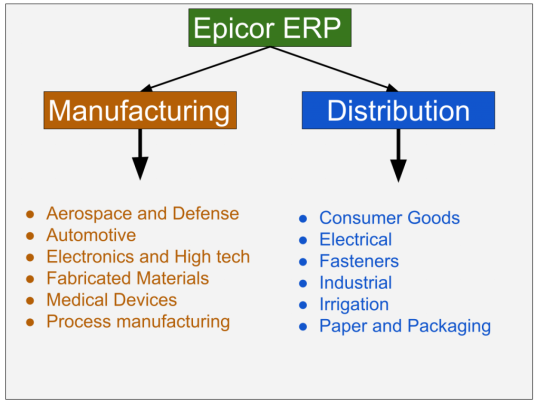
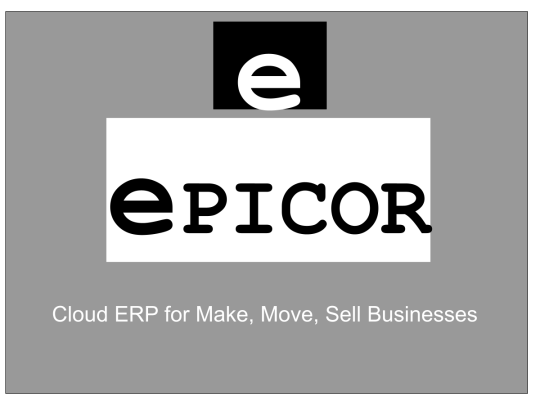
Nowadays, cloud ERP is changing the way we do business. With the introduction of cloud ERP solutions, companies can manage their entire information in one place and streamline the flow of information from one end of the organization to another. It's no wonder that Epicor ERP has been chosen as the leading cloud ERP provider for distribution and manufacturing businesses.
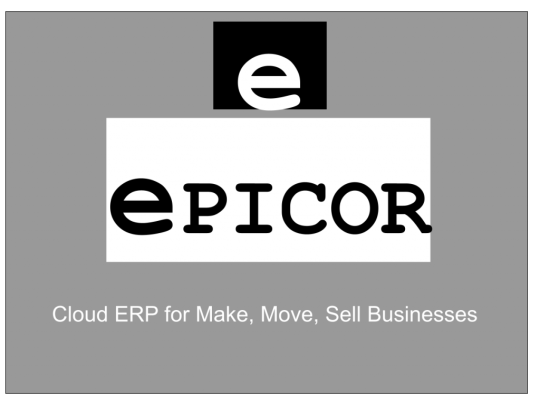
What is Epicor ERP?
Epicor ERP is a complete ERP solution that helps you transform your existing infrastructure into an efficient, enterprise-grade solution. That means you'll be able to manage and streamline the entire process of managing your business.
Epicor ERP Pricing
Epicor does not give pricing information. You need to contact Epicor directly to get pricing information.
Implementation
The implementation process is divided into five sections. - Prepare - In this beginning stage, the consultant team of Epicor lines up the implementation plan expectations with the software suite of the customer company. - Plan - In this stage, the team establishes the project foundation by creating a blueprint that includes resource requirements, system requirements, and time requirements per the customer company's budget and needs. - Design - In this stage, the company's project team starts using the software and documents to check whether the system meets its business needs and goals or not. - Validate - In this stage, validation of the system takes place. The customer company ensures that all its business procedures are documented accurately, and business processes flow correctly through the system. - Deploy - In this stage, the Epicor consultant team gives training to end-users and helps the customer company develop its plans. While moving from one stage to another stage, a series of inputs, tools, and techniques will be used.
Supports and Services
Epicor provides support through service centers that are located all around the world. These service centers offer supports for both On-premise and Cloud deployment. It also offers additional support through an online support portal, EpicCare, and Epicor University. EpicCare is a cloud-hosted customer support portal. It provides support as per the customer feedback. Epicor University supports the customer by providing complete training tools.
Available Features in Kinetic platform
Kinetic is the new name for Epicor ERP. It is a multi-tenant cloud solution. It offers features like - Employee Experience - Manufacturing Operations - Global Supply chain - Customer Focus - HR and Finance - Business Intelligence - Product Management - Services and Assets - Risk and Compliance
Advantages of Epicor
- It provides modules to handle your business processes from accounting to CRM, project management to HR. In addition, this software allows you to choose the module that you want. - It provides a fully-featured accounting and financial management module. With its help, you can take a wide variety of reports and statements.
Disadvantages
- Its implementation and customization are complex. - It needs an expert team/user to maintain the software. - You will not get support on time.
What industries does it support?

Epicor is mainly dedicated to manufacturing and distribution. Epicor for manufacturing Under manufacturing, it supports the following businesses - Aerospace and defence - Automotive - Electronics and High tech - Fabricated Metals - Furniture and Fixtures - Industrial Machinery - Medical Devices - Process Manufacturing - Rubber and Plastics Epicor for distribution Under distribution, it helps below businesses. - Consumer Goods - Electrical - Fasteners - HVAC - Industrial - Irrigation - Janitorial - Medical Supply - Paper and Packaging - Petroleum - Plumbing - Tiles - Welding, Pipes - Valves and Fittings Apart from these two industries, it also serves the Retail sector and Lumber and Building materials.
Epicor ERP Alternatives
Following are a few top alternatives of Epicor ERP. - Oracle NetSuite - Microsoft Dynamics GP - Infor - E2 Shop System - Microsoft Dynamics NAV - Sage Intacct - Genius ERP
Epicor ERP Customers
- PhRMA - BHP Groups - Reece Group - Syneos Health - Boral Roofing Pvt. Ltd - Hallmark Building Supplies Inc. - Omega Plastics - AIM Aerospace You can find more cloud ERP software similar to Epicor. Read the full article
0 notes
Text
Salesforce Vs. NetSuite: A Brief Comparison For Right CRM
Do you need a thorough analysis of your customer? Do you dream of owning a centrally-located, real-time data and forecasting system powerful enough to draw more customers to the forefront?

Undoubtedly, CRM rolls the drum for you.
CRM upholds the second type of client experience. Each communication dependent on CRM sets out freedom for your client to have a closer-to-home, convincing experience. It's additionally a chance for you to develop brand value, further develop fulfillment, and make more sales. Also, that is the way you create room for customer loyalty and sky-rocketing profits.
Most entrepreneurs realize that Salesforce mobile app development is the more famous and confided in business relations and data analysis alternatives. In any case, there are a few more CRM choices accessible online that give as much guideline and backing as Salesforce application development services.
Salesforce and NetSuite are two astoundingly effective programming decisions. Be that as it may, how both are developed is different, yet you can discover a few similitudes.
Salesforce Vs. NetSuite- Outline
Salesforce mobile development leads to an incredibly adaptable CRM with distinctive features like web to lead, reducing copy leads, email and operations management, Google applications incorporation, opportunity prediction, and so on, alongside the standard CRM highlights like Lead, Account, Contact, and Opportunity Management.
When contrasted with NetSuite, Salesforce is a significantly well-known name, yet NetSuite CRM has loads of components competing with Salesforce. NetSuite CRM conveys a consistent exchange of information across the entire customer lifecycle — from lead to a clear shot, order, request, renewal, strategic pitch, upsell, and support.
Presently let us investigate two of the most generally utilized CRM frameworks: Salesforce and NetSuite. We will see how they hold facing each other regarding crucial features and driving past shut arrangements.
1) Personalisation
Salesforce: Salesforce is profoundly adaptable and has many components accessible to automatize the activities. It additionally gives simple to-utilize, administrator cordial instruments for processes and automation. Here, a supervisor is needed to provide authorizations and definitions for everything. Reporting in Salesforce is essential. It is a simple cycle to change reports into key execution pointers and other services, offering different dashboards, clients', or title role dashboards.
NetSuite: NetSuite offers incredible customization landscapes with its toolbox, SuiteScript. SuiteScript is based on JavaScript principles and is equipped for refurbishing excessively convoluted business processes. Such customizations are held inside the record when the updates are made.
2) Integration
Salesforce: Salesforce's one of most unmistakable benefits is the AppExchange. Integration is restricted, which makes the client not ready to see all the data of the administrative center. Reconciliation with bookkeeping is extraordinarily cluttered and is only simplified when marketing security is concerned.
NetSuite: While then again, NetSuite shouldn't be coupled with any application to have a 360-degree focus. NetSuite is all-utility CRM software; it can deal with the same things that Salesforce does, that too with no additional expense, in addition to with a benefit of a direct relationship to an ERP. It has an underlying feature that makes the client peek into administrative data.
You can also read this article: Know Your Salesforce Mobile App Better With This Quiz
3) Simplicity of Implementation
Salesforce: Salesforce is a more robust enterprise solution that makes incorporation an intricate cycle. It is a phenomenal fit for top-of-the-line associations or ventures. The capacities of Salesforce as a part of Salesforce mobile app development services in the USA are not as thorough as the NetSuite, and organizations need a solid administrator to take advantage of Salesforce.
NetSuite: When it comes to simplicity of execution, NetSuite is more effective because it is simpler to incorporate and has a more easy-to-use interface. NetSuite gives a dependable, comprehensive cloud solution. It is backed by Oracle, which is one of the prominent enterprise programming firms on the planet.
4) Mobile Access
Salesforce: Salesforce CRM development company makes products that help deal marketing people utilize local mobile applications for Android and iOS to manage the sales, access dashboards and documents, associate telephone calls, work together with other colleagues effectively, and the sky is the limit from there.
NetSuite: NetSuite CRM gives bespoke mobile applications to Android and iOS to engage clients to get to business data and perform other fundamental activities like overseeing leads, making quotes and orders, observing estimates, and that's just the beginning.
5) Cost
Salesforce: Salesforce mobile app development is a more reasonable option for organizations when contrasted with NetSuite CRM. This is membership-based software that additionally gives a free trial.
NetSuite: NetSuite is expensive when contrasted with Salesforce. It is additionally subscription-based however doesn't give a free trial option.
6) Support
Salesforce: Salesforce gives international calling support that can be bought. The users can likewise buy content for improving client reception and admittance to a devoted achievement representative.
NetSuite: NetSuite gives telephone backing to a wide range of plans and can be bought through premium support plans. Clients may take advantage of site assistance, online networks, and information base.
Final Words-
As should be obvious, there are a few likenesses and contrasts between Salesforce and NetSuite. Thus, picking a CRM framework boils down to understanding your objectives for the framework and your practical prerequisites.
Although Salesforce is a CRM pioneer, it doesn't mean it will be the best software for you. On the opposite side, contingent upon your necessities, ERP can be needless excess. In this way, while picking the most reasonable CRM, consistently recall the significance of client relations. The information gathered from your customers is vital as it can fabricate or obliterate your business, so pick wisely.
Need to reinforce your Salesforce CRM with business-centered integrated systems? Contact the experienced team of Consagous Technologies to understand how we can help you accomplish your CRM objectives. Get a free consultation today!
Original Source:
https://www.consagous.co/blog/salesforce-vs-netsuite-a-brief-comparison-for-right-crm
#Salesforce mobile app development#Salesforce mobile app development services#Salesforce CRM development company#Salesforce Mobile App#Salesforce Mobile development company#Salesforce application development services
0 notes